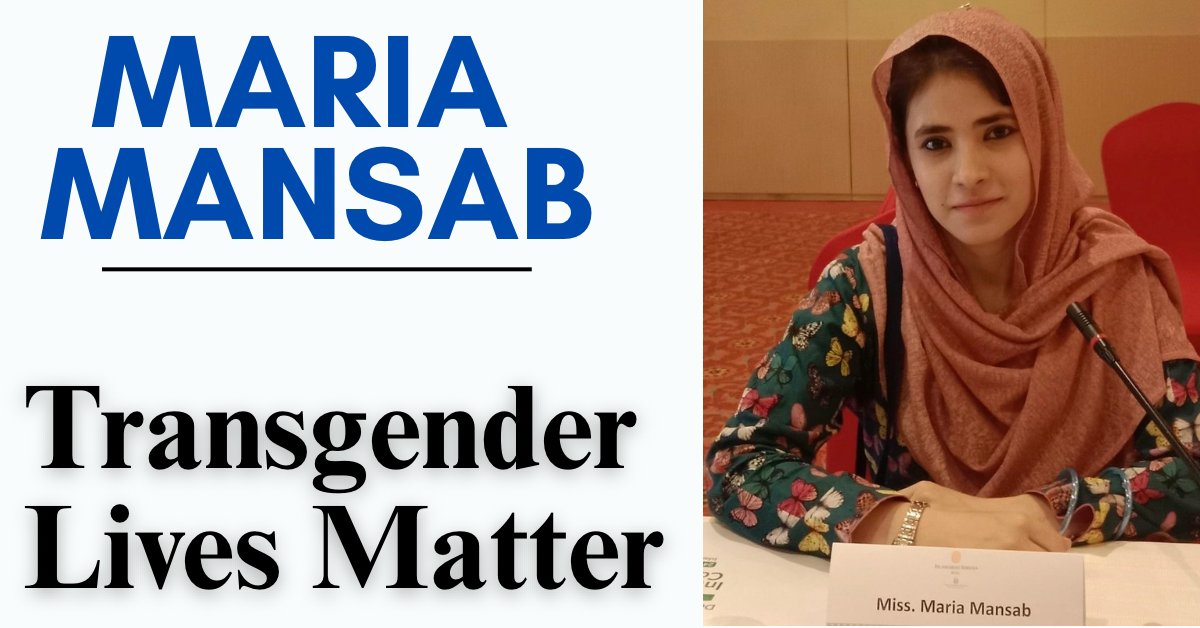I still recall an incident a few times back during my trip on the metro in Islamabad. A trans woman boarded the bus, graceful-looking but noticeably hesitant. Her body language was uncertain, her eyes scanning the faces around her, as if silently seeking permission to simply exist. She didn’t take a seat next to anyone, although there was a space. She stood by herself in a corner of the women’s section, adjusting her dupatta repeatedly. I could feel that she didn’t want to “offend” anyone, not to draw attention. Her presence, her identity, seemed like something she felt she needed to apologize for.
That image comes back to me, particularly after learning about what happened on June 13, 2025, in Mirpur. Zaibi, the prominent figure among transgender people, was killed that evening. It was meant to be a joyous occasion, a wedding reception. It turned out to be yet another tragedy. Zaibi was gunned down by a person she once called a friend. Her friend, Beenish, was hurt during the attack. The suspect, Malik Tauqeer, was said to be angered because of a quarrel over personal photos. But what does it reveal about us as a society that a dispute could so readily conclude in death, particularly when the victim is transgender?
For the community, this isn’t just about one person. Zaibi’s murder was the seventh of its kind in Khyber Pakhtunkhwa in 2025 alone. In the last five years, 267 cases of violence against transgender individuals have been reported in the province, and only one led to a conviction.
What these numbers fail to convey is the day-to-day humiliation, embarrassment, and fear that transgender individuals live with. They are mocked on the streets, reduced to vicious stereotypes, and are seldom treated as human beings who have aspirations, dreams, and rights. For many in Pakistan, transgender individuals live on the margins, confined to begging, dancing, or prostitution, not by choice, but because society does not allow them any other space.
When a transgender person walks down the road, many people stare, not with kindness or curiosity, but with disrespect. I’ve witnessed it firsthand. People smirk, whisper, and make sexist remarks. Their laughter is laced with ridicule. Their gaze is invasive, inspecting how someone walks, talks, or dresses, as if their existence is some kind of performance to mock.
And yet, in all of it, it is the transgender individual who has to make themselves shrink, to apologize for being present.We pride ourselves on the values of respect, dignity, and hospitality. But those appear to cease the moment a person doesn’t fit into our limited vision of what is “normal.”
Transgender individuals in Pakistan face daily social exclusion, and when violence does occur, there’s hardly a ripple. Whether it’s Shagufta and her friend murdered in Nowshera earlier this year while coming back from a musical concert, or the thousands of such reported incidents of assault, abduction, and harassment, the message from society is painfully clear: your lives matter less.
More than 2,800 such cases have been documented since 2015. That’s not a statistic, it’s a crisis.
Yes, Pakistan made history in 2018 by enacting the Transgender Persons (Protection of Rights) Act. It provided legal recognition, the right to self-identify, and access to ID cards. But legal rights are nothing without social acceptance and institutional protection. Transgender individuals might now have documents to show, but many still lack safe housing, employment, or access to health care.
Even political inclusion remains symbolic. Although frameworks exist, political parties have not yet incorporated transgender people into the democratic process. For the majority, engagement reaches only visibility, not empowerment.
When Zaibi was killed, protests broke out outside Mirpur police station. Roads were closed. Voices were raised. The people demanded what they always do: justice, dignity, and the freedom to live without fear. But how many more Zaibis need to die before that demand is addressed?
The transgender woman I encountered on the subway did not utter a word. She didn’t need to. Her silence spoke volumes: “I know I am not safe. I know I do not belong. But I’m here anyway.” And that bravery, merely being in a place that is always rejecting you, is something we should respect, not condemn.
We owe our transgender citizens much more than court cases and condolences. We owe them security, acceptance, and most of all, the simple, unshakeable truth that their lives are just as important as anyone’s. Because no one should ever have to stand in the corner of society and apologizing for who they are.

